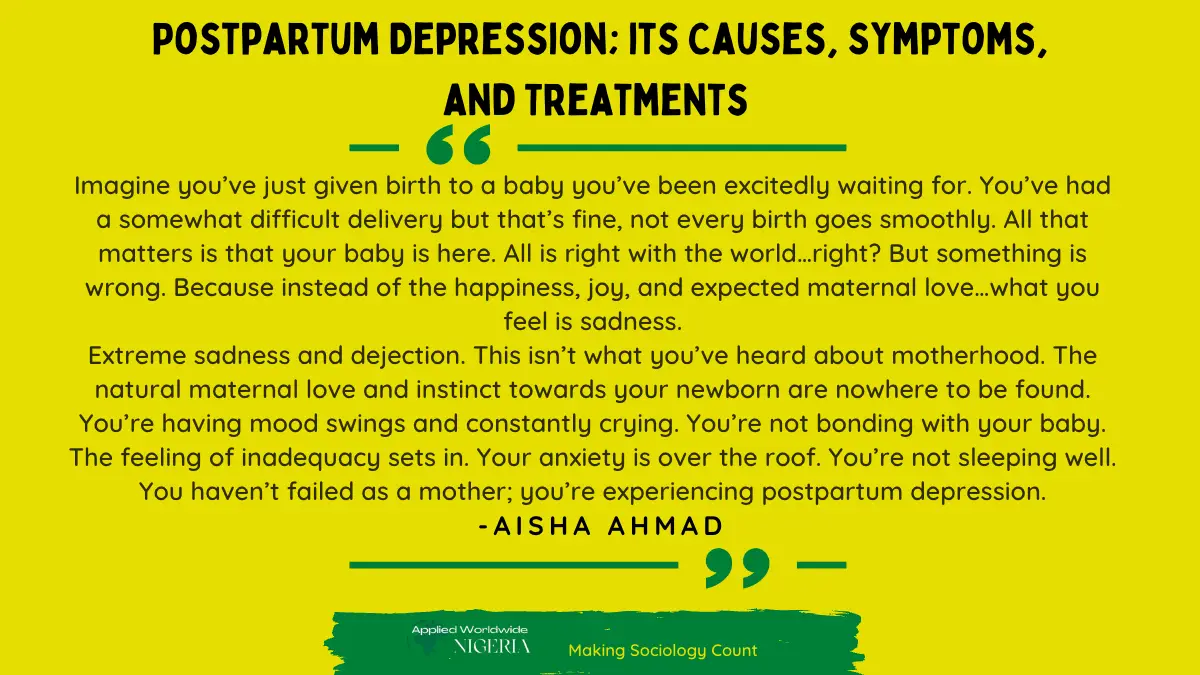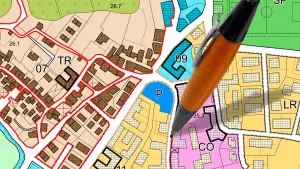Forlorn. Vacant expression; eyes that look beyond the world. Numb, yet hyper-aware of your pain. Despair, like a Dementor’s Kiss. Postpartum Depression.
You’ve probably heard of it. If you haven’t, then you’ve most likely seen people going through it in movies, books, or even someone you know. Depression is a medical illness that negatively affects the way you feel, the way you think, and even the way you look at the world. If I would take a shot at putting feelings into words, I’d describe it as the feeling of free-falling down an abyss, an endless bottomless pit of despair, numbness, and loneliness, all at once. An oxymoron.

Imagine you’ve just given birth to a baby you’ve been excitedly waiting for. You’ve had a somewhat difficult delivery but that’s fine, not every birth goes smoothly. All that matters is that your baby is here. All is right with the world…right? But something is wrong. Because instead of the happiness, joy, and expected maternal love…what you feel is sadness.
Extreme sadness and dejection. This isn’t what you’ve heard about motherhood. The natural maternal love and instinct towards your newborn are nowhere to be found. You’re having mood swings and constantly crying. You’re not bonding with your baby. The feeling of inadequacy sets in. Your anxiety is over the roof. You’re not sleeping well. You haven’t failed as a mother; you’re experiencing postpartum depression.
Postpartum depression is depression that starts after childbirth. It occurs in 1 in 9 women. “Baby blues”, on the other hand, occurs two or three days after childbirth. It’s a short-term dip in the mood caused by the changes that come with having a new baby. It normally clears away in a week or two after childbirth.
Is it postpartum depression?
If after two weeks the baby blues don’t go away, it’s most likely postpartum depression. If you have any of these symptoms, call a nurse, doctor, or midwife:
- Feeling restless or moody
- Sadness, hopelessness, or feeling overwhelmed
- Severe anxiety and panic attacks
- Thoughts of harming yourself and/or your baby
- Difficulty bonding with your baby
- Loss of appetite or eating too much
- Feeling worthless, guilty, or inadequate
- Constant headaches, stomachaches, and pains that won’t go away
Causes and risk factors of postpartum depression
What causes postpartum depression and what are the possible risk factors? Knowing the risk factors before delivery will help you manage it better after childbirth. Estrogen and progesterone multiply throughout pregnancy, but they quickly decline after birth. The levels of these hormones return to pre-pregnancy levels three days after delivery. Physical changes and mental factors may also combine to cause postpartum depression stressors.
These risk factors include but are not limited to the following:
- Personal history of depression, postpartum depression, or premenstrual dysphoric disorder (PMDD)
- Marital or relationship conflict
- Pregnancy complications
- Special needs or fussy babies
- Young parents (20 or younger)
- Ambivalence about pregnancy
- Self-image (feeling less attractive, and a sense of loss of control over your life)
- Not having support from family and friends
- Drug and alcohol misuse
Treatment of Postpartum Depression
Postpartum depression can be treated using medicine, therapy, or even support groups. The most common medication is prescribed antidepressants but they typically take from 6 to 8 weeks to fully start working. For breastfeeding mothers, medical practitioners will recommend safe medications. Brexanolone (Zulresso), a new medication, may be administered intravenously for severe cases.
Hormone therapy and cognitive behavioral therapy can significantly improve postpartum depression. Other natural remedies include eating a healthy diet, yoga or meditation, gentle exercise, and spending time in nature alongside traditional medical treatments. Arranging for child care so you can take a break can go a long way if you don’t have people around that can help out. It is important that new mothers are surrounded by love, and supported during this new phase. Participation in a support group for emotional support and education can bring a sense of understanding and stability.
When a woman gives birth in Nigeria, she is usually taken to her parent’s home for 40 days. She receives all the support she needs during those 40 days and stays indoors the entire time. This will keep her from feeling overwhelmed, and if she is a new mom, teach her how to care for a newborn. But what happens after the 40 days?
In particular, partners need to provide more assistance and support to new mothers. But that’s not usually the case. The fact that husbands lack the skills to assist is one of the reasons why they don’t. The man is seldom ever taught how to take care of a baby in a typical Nigerian home; only the woman is. Another reason is they simply are not interested in helping out. Husbands can always help out by doing the chores, assisting with feeding and diaper changes, and watching the baby while the mother gets some much-needed rest.
I recently saw a viral video of Michelle Obama, the former First Lady of the United States, in which she revealed how she began to harbor feelings of resentment towards her husband because she believed he wasn’t helping out with taking care of the children as she was. One of the causes of postpartum depression in moms is what appears to be a lack of support from spouses. To reduce their chance of developing postpartum depression, the two partners should find a balance.
Fathers can experience postpartum depression Studies show that new fathers can also experience postpartum depression. This is called “paternal postpartum depression”. 1 in 10 new fathers experiences this in the first year their child is born. They might experience changes in their regular eating and sleeping schedules, or they can feel depressed, exhausted, overwhelmed, or anxious.
The fathers who are most susceptible to paternal postpartum depression are those who are young, have a history of depression, struggle financially, or suffer relationship problems. The same detrimental effects that postpartum depression in mothers can have on partner relationships and child development can also occur in fathers.
Managing Postpartum Depression
Here are some tips to help you in adjusting to having a new baby at home:
- Ask for assistance. Inform those around you how they may assist you
- Be realistic in your expectations for the baby and yourself
- Exercise while adhering to whatever limits your doctor may place on your level of physical activity. Go for a walk and get out for a bit
- Be prepared for both good and terrible days
- Eat a healthy diet and stay away from coffee and alcohol
- Develop your relationship with your partner by dedicating time to them
- Stay in touch with loved ones and friends; avoid isolating yourself
- Keep guests to a minimum when you first return home
- Calls should be screened
- Sleep or rest when your child falls asleep
People who are depressed may not be aware of or disclose their depression. They might not even notice their signs and symptoms. Once you recognize these symptoms of postpartum depression in your friends or loved ones, help them seek medical attention immediately. Don’t hold out, hoping for things to get better.







